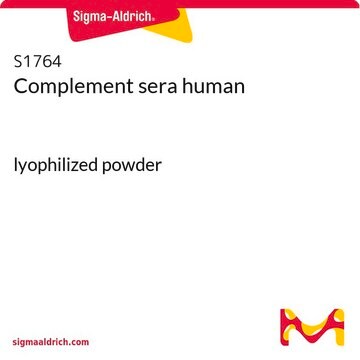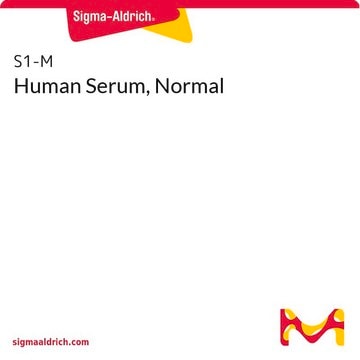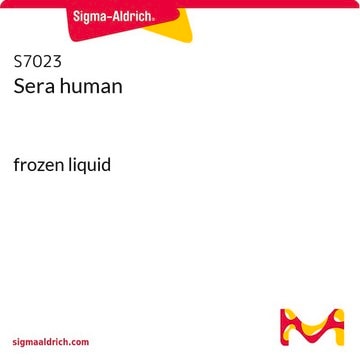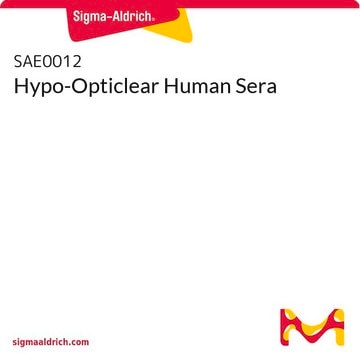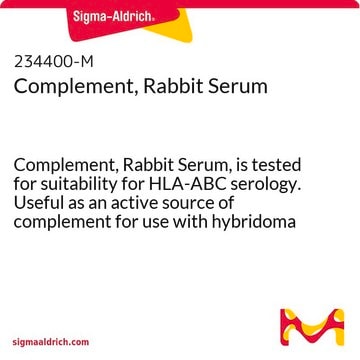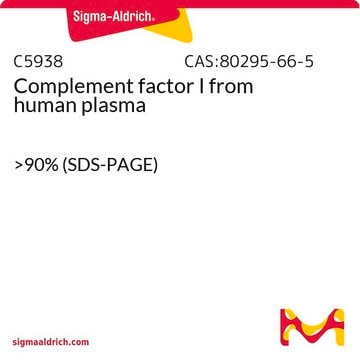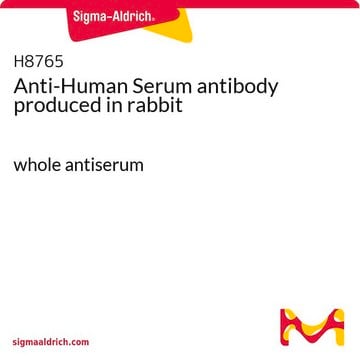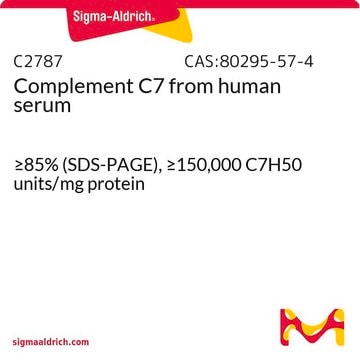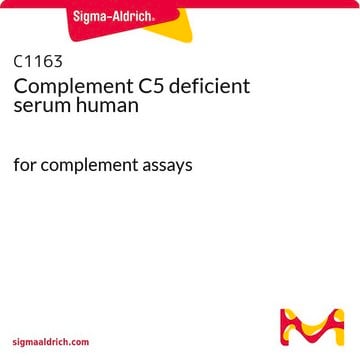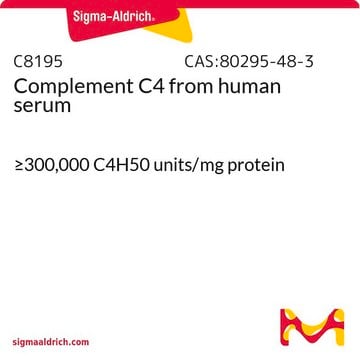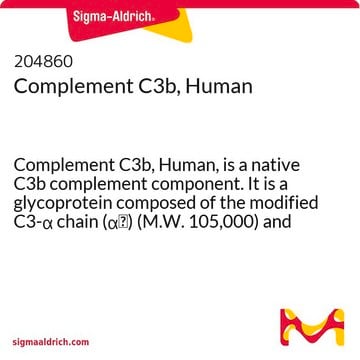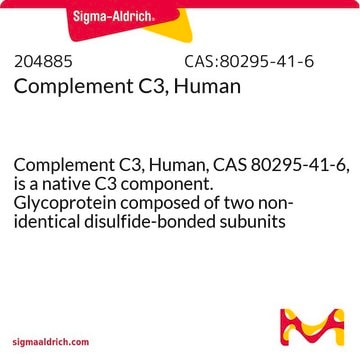C9473
Complement Serum Standard human
aqueous solution
Synonym(s):
Human Complement Serum
Sign Into View Organizational & Contract Pricing
All Photos(1)
About This Item
UNSPSC Code:
12352202
NACRES:
NA.61
Recommended Products
biological source
human
Quality Level
form
aqueous solution
application(s)
cell analysis
shipped in
dry ice
storage temp.
−70°C
General description
The complement serum standard human is suitable for the determination of CH50 and AP50 complement activities. This allows for a test of the complement activity on the capacity of the serum to lyse red blood cells in vitro and can be used in procedures for genotyping DNA samples of the complement system.
Application
Complement Serum Standard human has been used as a positive control to study the role of the complement system in immunological demyelination of the spinal cord from mammals.
Biochem/physiol Actions
The complement system is an important constituent of innate immunity. It participates in the first line of defense against microbial infections, altered host cells, and removal of immune complexes and injured cells. The complement system comprises more than thirty components such as the plasma proteins produced by the liver, membrane proteins expressed on the cell surface, cytokines, and hormones. The complement proteins come together to opsonize the pathogens and initiate a cascade of inflammatory responses serving the immune cells to fight the infection and maintain homeostasis.
Physical form
Supplied as a 0.22 μm filtered solution containing ~ 18 mM citrate, ~22 mM dextrose, ~3 mM phosphate and ~13 mM calcium
Disclaimer
RESEARCH USE ONLY. This product is regulated in France when intended to be used for scientific purposes, including for import and export activities (Article L 1211-1 paragraph 2 of the Public Health Code). The purchaser (i.e. enduser) is required to obtain an import authorization from the France Ministry of Research referred in the Article L1245-5-1 II. of Public Health Code. By ordering this product, you are confirming that you have obtained the proper import authorization.
Storage Class Code
11 - Combustible Solids
WGK
WGK 3
Flash Point(F)
Not applicable
Flash Point(C)
Not applicable
Choose from one of the most recent versions:
Already Own This Product?
Find documentation for the products that you have recently purchased in the Document Library.
Customers Also Viewed
Nicolas S Merle et al.
Frontiers in immunology, 6, 262-262 (2015-06-18)
Complement is a complex innate immune surveillance system, playing a key role in defense against pathogens and in host homeostasis. The complement system is initiated by conformational changes in recognition molecular complexes upon sensing danger signals. The subsequent cascade of
Risk Alleles in CFH and ARMS2 Are Independently Associated with Systemic Complement Activation in Age-related Macular Degeneration.
Smailhodzic D., et al.
Ophthalmology (2011)
J K Dyer et al.
Spinal cord, 43(7), 417-425 (2005-05-18)
Specificity of serum complement component to elicit immunological demyelination. To assess the role of complement components and pathways in experimental immunological demyelination of the adult rat spinal cord. ICORD, University of British Columbia, Vancouver, Canada. We used 32 adult male
Marina Noris et al.
Seminars in nephrology, 33(6), 479-492 (2013-10-29)
Complement is an important component of the innate immune system that is crucial for defense from microbial infections and for clearance of immune complexes and injured cells. In normal conditions complement is tightly controlled by a number of fluid-phase and
P J Francis et al.
Journal of medical genetics, 46(5), 300-307 (2008-11-19)
Age related macular degeneration (AMD) is a leading cause of blindness. AMD is a complex disorder caused by genetic and environmental factors in which single nucleotide polymorphisms (SNPs) in the genes CFH and LOC387715/HTRA1/ARMS2 have prognostic importance for progression to
Our team of scientists has experience in all areas of research including Life Science, Material Science, Chemical Synthesis, Chromatography, Analytical and many others.
Contact Technical Service